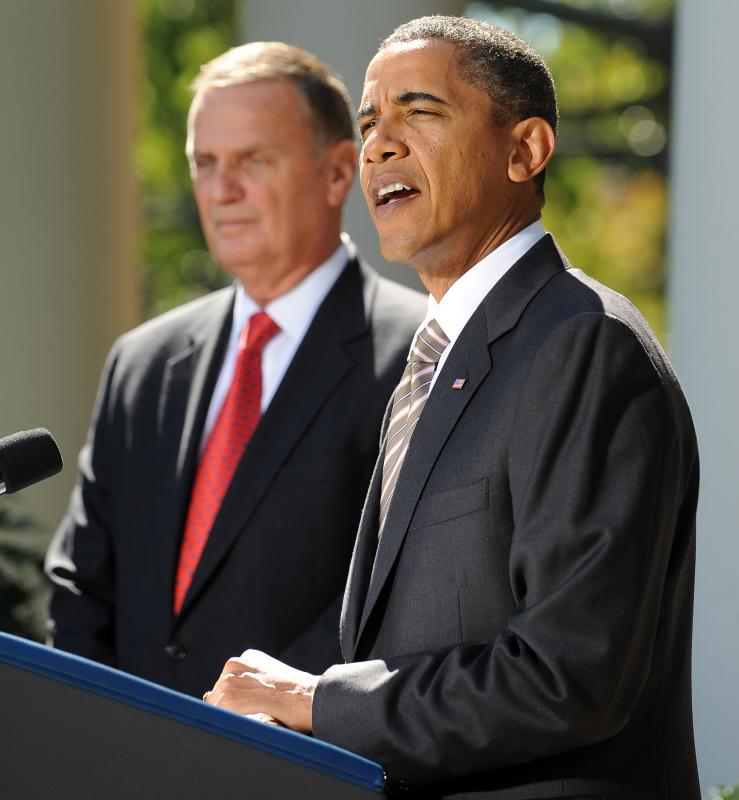
Despite America’s penchant for lauding its “exceptionalism,” regarding “strategic thinking,” this exceptionalism applies to getting that thinking right.
Too often, we get it wrong or allow it to be absent without leave. Over the past century, our record has been poor.
We won World War I yet, in the aftermath, we helped sow the seeds for World War II. Korea was at best a draw. Vietnam was a defeat.
In Iraq, we have inadvertently enabled Iran to become a serious regional power. Guarded optimism over military progress against the Taliban isn’t synonymous with turning Afghanistan into a functioning state under the rule of law.
World War II and the Cold War were obviously two of the greatest conflicts of the 20th century. In the latter, while Richard Nixon’s thrust to China was strategically brilliant and disciples praise Ronald Reagan for defeating the Evil Empire.
In fact, the Soviet Union fell of its own weight and incompetence. Indeed, had Dwight Eisenhower had his way, and John Kennedy not been so politically motivated in distorting the Soviet threat above its actual danger, who knows if the Cold War might have ended earlier.
During World War II, Britain’s leading general, Alan Brooke, continually criticized the lack of U.S. strategic thinking as well as its impetuous nature to launch a second front in Europe before the allies were ready.
Of course, American generals rightly faulted Gen. Bernard Montgomery of El Alamein for his tactical caution and timidity. The one bold operation Montgomery attempted was the failed Market Garden assault on Arnhem, dryly critiqued as “a bridge too far.” And Franklin Roosevelt complained that Winston Churchill’s opposition to early European landings was based on his paranoia over Joseph Stalin and Soviet post-war intentions — not a faulty prediction.
Since the end of the Soviet Union, American strategic thinking hasn’t been distinguished. One reason is that we elect presidents with little strategic experience. Of the last three, two (Bill Clinton and George W. Bush) were governors with no obvious national security backgrounds. Barack Obama served for only four years in the U.S. Senate and the Foreign Relations subcommittee of which he was chairman never was convened.
Of course, advisers are meant to fill this void. That doesn’t always happen. And when it does, as Bush 43 learned, that doesn’t guarantee success.
Obama ran as the uncola candidate chastising Bush’s excesses in making war on Iraq and compensating by making Afghanistan his war in large part to pre-empt his opponent, John McCain, from accusing Obama of being weak on national security.
Once president, his rationale for the buildup in Afghanistan was based on “disrupting, dismantling and defeating al-Qaida.”
However, to achieve that end, the Taliban became the strategic center of gravity. This was an absurd reversal of ends and means, mainly because there was only a handful of al-Qaida in Afghanistan with many other places where this loosely defined network of extremists could and did find safe haven.
Worse, the real center of gravity for stability in the region — Pakistan — was only regarded with rhetoric and not with serious resources that would strengthen both its economy and its military capacity to deal with its extremists particularly on its Afghan border.
None of this should be surprising. After all, who in the new and young president’s immediate circle had any background in strategic thinking?
Those who did came from military backgrounds — the first national security adviser U.S. Marine Gen. James Jones — and the Pentagon, namely Defense Secretary Robert Gates who was appointed by Bush and U.S. Navy Adm. Mike Mullen, chairman of the Joint Chiefs of Staff.
The Pentagon, armed with greater intellectual and operational firepower than the White House civilians, predictably set the new Afghan strategy. Unfortunately, as with Bush 43 who ignored the post-war consequences of Operation Iraqi Freedom, Obama failed to appreciate that peace in Afghanistan required a regional solution, one he has been unable to generate. And the influence his small circle of political advisers trumped that of his national security adviser.
Jones has since stepped down and Gates and Mullen will both end their service this year. The new national security adviser Tom Donilon isn’t a strategic thinker in the mold of a Zbigniew Brzezinski or Brent Scowcroft and more akin to Clinton’s second national security adviser, Sandy Berger, an international trade lawyer.
So where will this new thinking arise?
In Congress, U.S. Sen. John Kerry, D-Mass., chairman of the Foreign Relations Committee, surely fills that bill. Yet, Kerry will stay where he is. And most members of Congress are understandably fixated on jobs, healthcare and domestic agendas.
Does the president fully understand that across the globe, America needs a strategy, not a laundry list of expectations? If not, we will attempt to muddle along. And if muddling doesn’t work, then …
Harlan Ullman is Senior Advisor at the Atlantic Council, Chairman of the Killowen Group that advises leaders of government and business, and a frequent advisor to NATO. This article was syndicated by UPI.
Image: Obama-NSA-Jones.jpg
